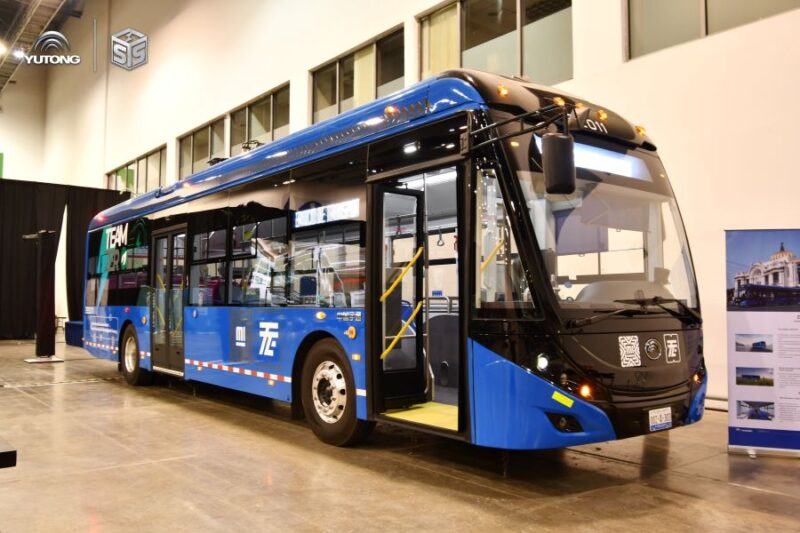1
2025 comes with a lot of hope and many aspirations. One of such is the increased benefits and possibilities around electric vehicles (EVs). The future of transportation is undoubtedly electric, and Africa has the opportunity to be at the forefront of this revolution. However, for the continent to successfully transition to electric vehicles, it will require overcoming significant challenges, including infrastructure development, affordability, energy access, and public education. Even though it is no more news and that it does not come as a surprise that the petrol and diesel-powered automobile/cars we have long been accustomed to still dominate the motoring landscape and indeed Africa with all the innovations and developments around mobility and transportation. No doubt the world is advancing towards clean and renewable energy options, in particular around electric vehicles (EV) adaptations. More so the popularity of EVs is growing and the disruption is already rapid in developed economies. But what baffles the author is that Nigeria seems not to be bothered and we continuously move on with our daily tasks without referencing what happens around us globally.
It is a common knowledge that the way to go is net zero emissions by 2050 across all business units and supply chains, including transportation. This is a key priority and a growing renewable energy footprint around the world but Africa is to the contrary from context observation. From the records and with a follow-up survey by the author in 2024 across the Republic of Ireland, a small country with a population of less than 6 million, as it stands, four out of every five homes now power their cars with 100% electric because the future of energy is electric. Such acceptance can promote energy security, zero-emission, reduced energy cost and sustainable future easily without any economic concerns. Is this achievable in Nigeria in the nearest future? Achieving net-zero emissions in Africa presents significant challenge due to factors like limited access to reliable electricity, reliance on traditional fuels, and underdeveloped and old infrastructure.
In Nigeria and indeed most countries in Africa, transportation sector is one of the largest contributors to global carbon emissions, with traditional gasoline (fuel) and diesel vehicles being primary sources of air pollution and environmental degradation. In response to these concerns, the rise of electric vehicles (EVs) could represent a significant shift towards more sustainable and eco-friendly transportation options, yet we are at the infant stage of adoption on the continent. As the world grapples with climate change and the depletion of fossil fuels, electric vehicles offer a promising solution to reduce pollution, enhance energy efficiency, and promote sustainability. Therefore, this piece presents key benefits, and the need to explore policy options for future potential of electric vehicles in Nigeria and indeed on the continent of Africa.
From observation, one of the most compelling benefits of wide spread usage of electric vehicles is their environmental impact. Unlike traditional vehicles that run on internal combustion engines, EVs are powered by electricity stored in batteries, which means they produce zero emissions. This can significantly reduce air pollution, particularly in urban areas like Lagos, Port Harcourt, Abuja and the like, where traffic congestion and poor air quality are major concerns. By shifting from gasoline (fuel) to electricity, EVs can help reduce the number of harmful gases, such as carbon dioxide (CO2), nitrogen oxides (NOx), and particulate matter, which are linked to health challenges and serious climate change. Carbon dioxide emission is a key driver of climate change. The gas usually traps heat in the atmosphere, gradually warming up the planet and causing intense heat wave and disruption of the ecosystems.
So to reduce the emissions of CO2 from combustion engines, working by burning fuel and overheating with high engine noise, electric vehicles are desirable. Because they more energy-efficient compared to their gasoline-powered counterparts, more so, EVs are with less maintenance culture and repair expectations are low. In fact, EVs are more cost-effective in the long run, despite high initial purchase price because over time the operational costs of running are lower. Believe it or not, EVs have fewer moving parts compared to conventional cars, where there is no need for oil changes, oil filters and radiator or coolants. In fact, the brake systems tend to last longer because of regenerative braking technology, a feature common in many electric vehicles. The cost of electricity for charging is also typically lower than the cost of the usual fuel or diesel, further reducing the lifetime costs of owning an EV.
With all the aforementioned the future of electric vehicles looks promising but technological advancements in battery storage, such as solid-state batteries and faster-charging technologies, are expected to improve to enhance the overall EV performance, its affordability, and convenience. As the global demand for clean energy grows globally, it is the hope of the author that governments in Africa, in particular Nigeria, will step up their efforts to encourage the adoption of electric vehicles. Though effort on Compressed Natural Gas (CNG) promotion is high in Nigeria in recent times, which is a clear alternative to high cost of fuel currently but the real global standard and future of transportation is electric.
Many countries have now introduced stricter emissions regulations, offering financial incentives such as tax credits, rebates, and subsidies to make EVs more accessible to consumers. Nigeria should not be an exemption; our government can also initiate similar policies. Additionally, several governments have set ambitious goals to phase out the sale of new gasoline and diesel vehicles in favor of zero-emission models EVs within the next few decades, Africa can also start promoting this. In addition, businesses and investments drive can be channeled into this developing critical area. Such as investment in home charging solutions, public charging infrastructure, wide spread charging stations, encouraging car manufacturers and private companies to set up assembling plants in Africa countries. Investing in home charging solutions will make it easier for individuals to charge their vehicles overnight. These investment options and widespread infrastructure will help reduce range anxiety and make electric vehicles a more viable option for everyday consumers in Africa.
While challenges such as charging infrastructure, battery costs, and range limitations remain, ongoing advancements in technology, along with supportive policies and growing consumer demand, are driving the transition toward a cleaner, more sustainable transportation system. This can also happen in Africa. As electric vehicles become more affordable and accessible, they have the potential to significantly reduce our reliance on fossil fuels, improve air quality, and create a more sustainable future for generations to come.
Dr. Olubiyi, an entrepreneurship and business management expert, writes via [email protected]








